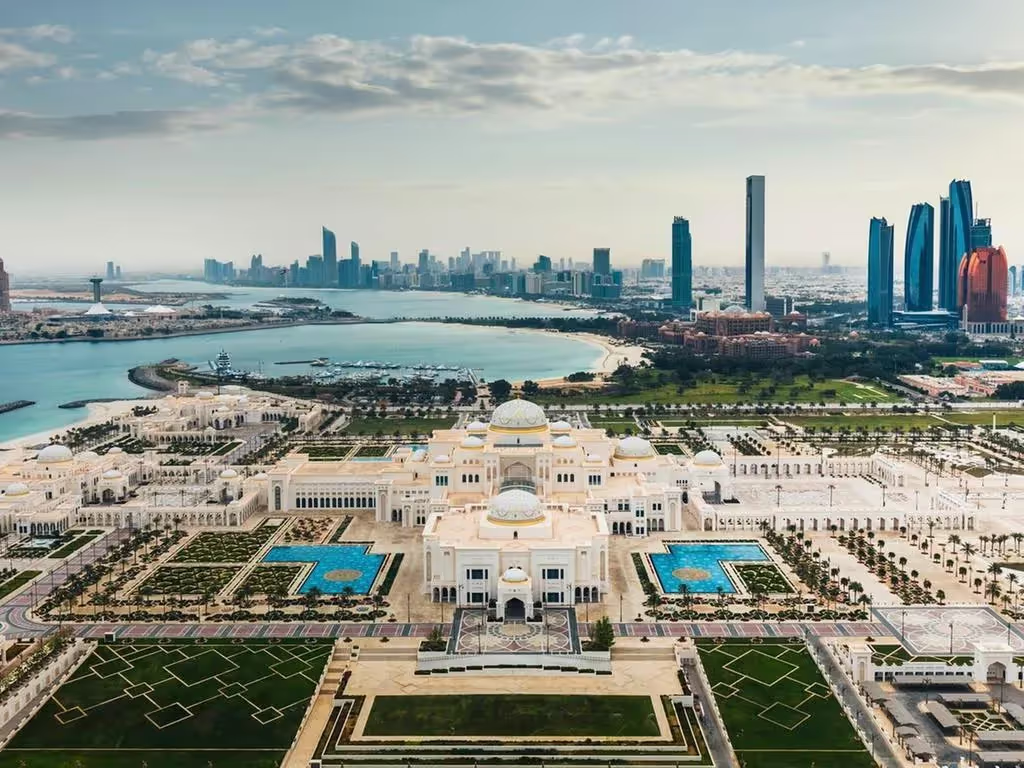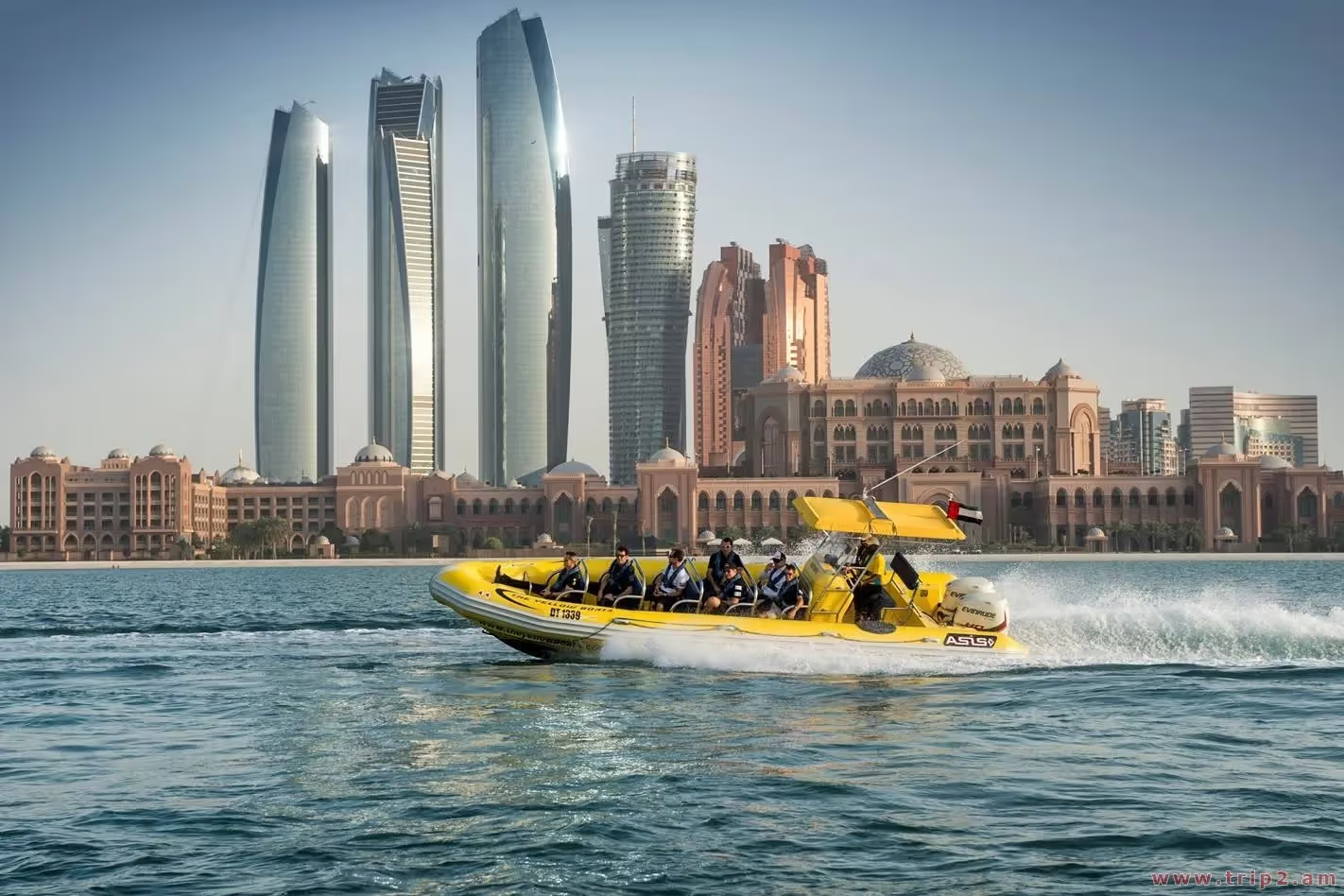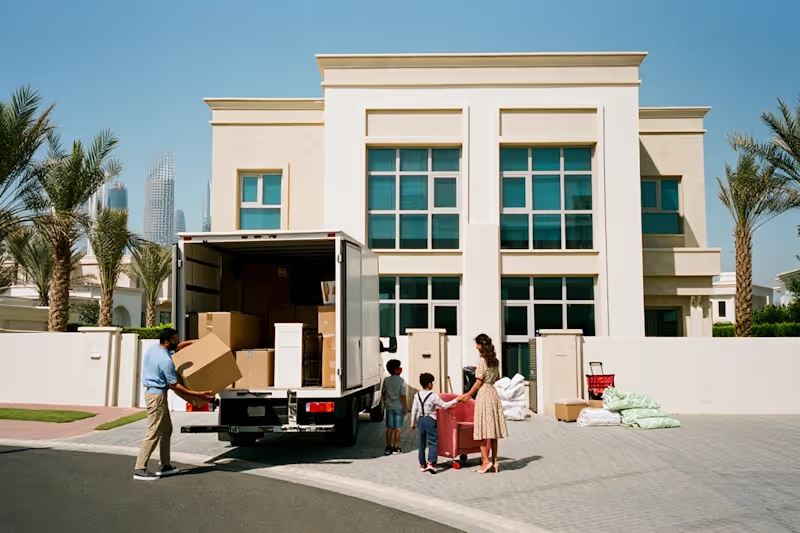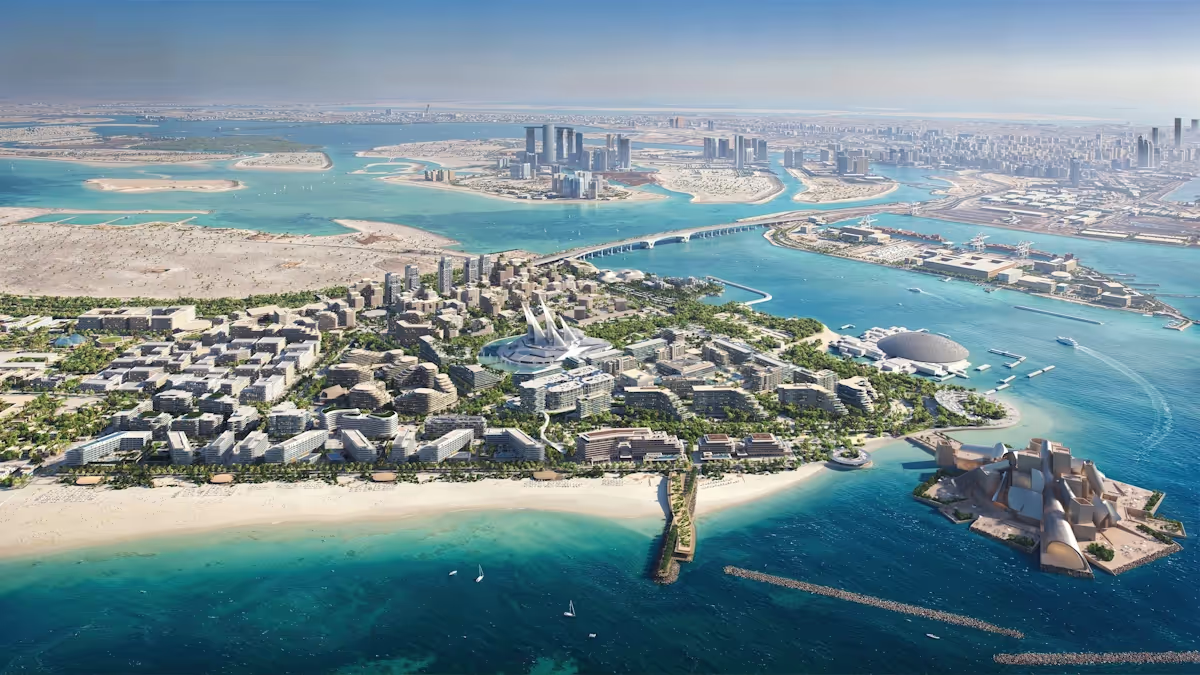Living in Abu Dhabi
Abu Dhabi is the UAE capital. It differs from the neighbor, Dubai, which houses multiple skyscrapers, modern architecture, and luxurious neighborhoods. Abu Dhabi preserves its culture while advancing into a modern-day sustainable city. We provided you a guide to see how life in Dubai looks like.
Main things to know
How to get to Abu Dhabi. It is the first thing you need to know. Abu Dhabi International Airport connects the city with numerous countries. It is one of the UAE's busiest airport. In 2019 it was called the best airport in the Middle East. Additionally, you can arrive in the city from other emirates is by road, like Sheikh Zayed Road (E11) that connects all seven emirates.
Climate. If you cannot imagine your life without bitter frosts and heavy snowfalls, you have nothing to do in Abu Dhabi. Lovers of the sun and heat will like it here. You can swim in the Arabian Gulf waters and enjoy the sunshine all year long.
Currency. The dirham is pronounced as 'deer-ham.' Visitors coming into the country have access to bureaus de change in the airport and various parts of the city. There are coins:
- 0.25 Fils.
- 0.50 Fils,
- 1 dirham.
Notes:
- 5 dirhams,
- 10 dirhams,
- 20 dirhams,
- 50 dirhams,
- 100 dirhams,
- 200 dirhams,
- 500 dirhams,
- 1000 dirhams.
The rate is relatively stable. 1 dirham = 0.27 USD, or 0.22 EUR.
Language. As 90% of the population is foreigners, you can hear all the world languages, but the main ones are Arabic and English. There are numerous courses for those who want to study the language.
Neighborhoods
Considering that there are 57 districts in Abu Dhabi, including the suburbs, then choosing the right one for you will not be difficult. And yet, there are areas more preferred by immigrants than others. We will list our top-5 here.
Downtown. Abu Dhabi city center is its heart and the concentration of essential infrastructure facilities. There are luxurious residential properties, massive shopping centers with everything you need, excellent restaurants and bars, the best kindergartens and schools in the city, and much more. This district can be your choice if you are not afraid of the big city's hustle and bustle. The other disadvantage of living here is it's the high cost of living.
Madinat Zayed. If life in the center does not appeal to you, but you also do not want to settle somewhere on the outskirts, this area will be ideal. The real estate is not as new as in the center, but their cost is significantly lower. This area will appeal to those who will cook at home, as there are numerous local bazaars with fresh food. Madinat Zayed is home to one of the most exciting sights of Ab Dhabi - the Gold Souk.
Al Raha. This area is on the Abu Dhabi mainland. Its main advantages are numerous beaches and a wide promenade. To reach the center, you need 25 minutes, but the international airport is just 10 minutes away. This area has everything you need: a large shopping center, a good hospital, several pharmacies, an international school with an impeccable reputation, catering establishments, etc. In the coastal zone, there are more modest villas, so renting them can be relatively cheap.
Khalifa City A and B. These are two districts near the airport and far enough from the center: it will take at least 30 minutes to get to the central part of Abu Dhabi. Prices for real estate here are relatively low due to their remoteness from the business part of the capital. Most residents live in private villas with pools, but you can find an apartment in a multi-story building. There are several big supermarkets in the vicinity and renowned Zayed military hospital.
Mohammed Bin Zayed City. If you regularly visit Dubai for business, then it is better to choose this area for living, as it is located within 40 minutes drive from it. Almost at the same distance as Abu Dhabi's center. Mohammed Bin Zayed City is ideal for couples with children, as it is relatively quiet, free from the hustle and bustle of tourists. There are several international schools and one kindergarten for children, numerous hospitals, and pharmacies.
Advantages of life in Abu Dhabi
Cultural mix. In the United Arab Emirates, no one feels like a stranger. According to the latest data, only 10-15% of citizens, the other 90% are foreigners from numerous countries. Living here is like a journey around the world. As you meet people worldwide, learn about their traditions get acquainted with world cuisines.
No crime. UAE's slogan "We have defeated crime!" is not an advertisement to lure more tourists, but a fact. Despite such an abundance of foreigners living in the UAE, purely symbolic locks are put on the front doors here, cars are left unlocked, and things are left unattended. There numerous reasons for that:
- Even minor offenses are severely punished with the subsequent life-long deportation of the offender.
- The UAE has the death penalty.
- Outstanding work of the police.
Various ways to become a resident. If you are engaged in entrepreneurship, you can register a company here literally in a week, either independently (in one of the free zones) or by sharing the risks with a local partner. There are many attractive vacancies for those looking to work in Abu Dhabi. Or you can take advantage of the investor visa by buying real estate for a minimum of AED 1M (272K USD). It is relatively easy to get and renew.
Excellent business prospects. If you are looking for new business opportunities, then Abu Dhabi is sure to please. Here you can make a good profit by investing in the oil industry, tourism, or industrial sectors. Foreigners, regardless of their citizenship, can register companies in Abu Dhabi by obtaining a resident visa. Besides, a business in the UAE has a zero tax policy.
Move together with the family. If you founded your own company or got a job with a minimum salary of AED 10K, then you have the right to move to the UAE with your wife and minor children. They will not need a separate resident visa as you are sponsoring them.
Lots of recreational opportunities. Cultural life in Abu Dhabi is raging. Since this is a tourist region, many entertainment centers have been built here. A great beach holiday will next to you together will all its activities: water parks, zoos, game centers, restaurants, museums, sports clubs, etc. Besides, Abu Dhabi, as the capital, hosts various events: exhibitions, fairs, sports competitions, forums, etc.
Good healthcare system. There are excellent hospitals in the United Arab Emirates, both private and public. They employ specialists with outstanding education and long-term work experience. You will be provided with healthcare services of any complexity, but their prices are not too encouraging. You can reduce this expense item if you purchase health insurance.
Excellent bank system. It is renowned for its reliability. Many people dream of opening a bank account in the UAE, but only residents can do it. If you are going to move to Abu Dhabi, you have already taken care of the resident visa. It will be enough to open your first account.
High salaries for specialists. The Abu Dhabi government sometimes is accused of building its well-being on the slave and low-paid labor of immigrants. Indeed, construction workers or agricultural workers receive the minimum wage, but skilled specialists in the UAE are valued. If you are a sought-after professional, then you can expect to be hired fast and paid well.
No bureaucracy and corruption. It is crucial not only for entrepreneurs but also for ordinary people. In the United Arab Emirates, everything is done according to the law, and not by looking for the "right" people in the bureaucratic offices and bribing them. You can take any certificate, register a company, open a license, and get the required document quickly enough by following understandable and straightforward government officials' recommendations.

Costs of living in Abu Dhabi
Really estate. It is the most considerable cost for any immigrant. The price for furnished studios starts around AED 25K annually, which is USD 6.8K.
The two-bedroom townhouses minimum price will be AED 50K annually, for three-bedroom villa AED 95K. It is USD 13K and USD 26K, respectively.
If you intend to purchase real estate, get ready to pay a minimum of AED 10K for each square meter.
Read here why you should invest in Abu Dhabi real estate.
Transportation. Public transport in Abu Dhabi is not very well organized. There are some buses run here, but using them is not as convenient as in Dubai. A single trip on a city bus costs AED 2, while a month's travel card is 80 dirhams. Taxi services are relatively cheap here: every kilometer is from AED 2, depending on the tariff.
If you permanently reside in Abu Dhabi, it is easier and cheaper to buy your car. In the UAE, a liter of gasoline costs from AED 1.5. If you have an international license, you only need to issue a driving license in the UAE. If not, you will have to obtain a permit in the Emirates: courses cost from AED 2900 to 3700, the registration itself from AED 4 500 to 7 000.
Food. Food prices are different:
fruits and vegetables - from AED 5 per kilo (USD 1.36);
meat - from AED 20 per kilo;
bread - from AED 4 per loaf;
milk - from AED 6 per liter;
cereals - from AED 8 per kilo;
drinking water - AED 2 for a bottle of 1.5 liters.
Alcohol in Abu Dhabi is not only expensive but also not sold freely. If you want to save money, it is worth buying domestic - Emirati products, they are cheaper than imported ones.
Electronics. Housing in Abu Dhabi is often rented furnished, but certainly without household or computer equipment. Fortunately, in the UAE, the cost of televisions, computers, refrigerators, and other electrical appliances is significantly lower than average.
Medicine. Pharmacy products in Abu Dhabi are not too cheap. For example, a packet of antipyretic Coldrex will cost you AED 20-30 (USD 6-8). The treatments are also quite expensive, so you cannot do without medical insurance—fortunately, most employers in Abu Dhabi provide it. If you need to get it yourself, it will cost from several hundred dollars to a thousand. But if you have to go to a doctor without insurance, the treatment will be even more expensive. For example, each visit to a specialist costs about $ 70, filling a tooth - from $ 50, simple operation (removal of the appendix, for example) - from $ 1.5 thousand.
Education. If you come to permanent residence in the UAE with your family: wife and minor kids, you will have to take care of preschool or school educational institutions for them. There are no free schools and kindergartens for immigrants in Abu Dhabi. The fees largely depend on which country founded this institution, what program is used to teach, and the reputation of the school or kindergarten.
The most expensive are considered British-style: prepare to pay at least AED 50 K annually (USD 13.6). Others may start from AED 30K.
Entertainment. Monthly gym membership costs from AED 300. Two tickets to a theater or cinema cost AED 80+. But nightlife will cost more: to visit a nightclub you need to have at least AED 100 per person. A romantic dinner for two in a good restaurant will cost AED 250-350.
Utilities. In Abu Dhabi, this includes mainly electricity, water, gas, and garbage disposal. It will cost you about AED 250 per month for an 85-sq m apartment.
Communications. Almost all houses and apartments are equipped with landline telephones, but mobile communication is much more appreciated. The standard price for one minute of mobile communication is AED 0.36. If you need unlimited communication, then the monthly payment will be AED 300. Internet in the Emirates is not a cheap pleasure: AED 350+ per month for limited access, since there is Internet censorship in Abu Dhabi.
There are numerous things you need to know before moving to Abu Dhabi, however, we tried to give you the most important details. You can find more information in our articles.






